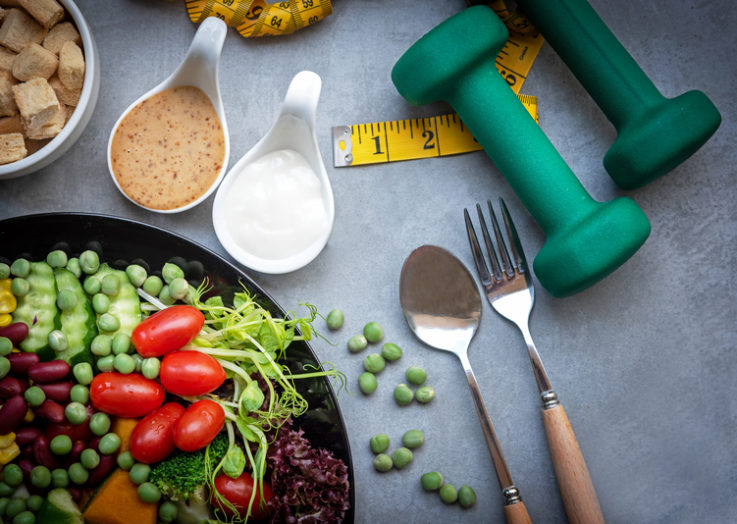Whether you followed my simple tips to lose 10 pounds in one month, or you followed your own program, you reached your goal weight—CONGRATULATIONS!
But you’re likely asking, “Now what?”
If you’re like 95% of the population, you will gain some, if not all, of the weight you lost on your journey back… and then some. While this statistic may seem shocking, it really isn’t all that alarming when you think about how your body works in regards to weight loss maintenance.
When you lose weight, often times your body can’t tell the difference between intentional weight loss and being struck by famine. So, the natural response is to go into protective mode, which means lowering your metabolism and stimulating your appetite to preserve fat stores.
Doesn’t seem quite fair after all your hard work to have those pesky pounds start creeping back up and starting the yo-yo dieting cycle all over again.
The issue I have found is that many folks jump on the bandwagon of the latest fad or extreme diet and exercise programs. These types of programs often entail severe changes, so you can only follow them for a short time. The problem with these is that while you may lose weight quickly, you are not learning how to create new, healthy habits you can employ moving forward.
The goal is to create a lifestyle that is both effective and manageable for your weight management long term, and the only way to do this is to find foods and activities you enjoy, and incorporate those into your daily routine.
The good news is that it takes slightly less effort for weight loss maintenance than it does to lose it, but the bad news is that it takes a whole lot less effort to regain it. 😉
The amazing team at Precision Nutrition has put together five strategies for sustaining your weight loss.
5 Keys to Weight Loss Maintenance
Tip 1. Use a habit-based approach.
Instead of using a plan that relies on a drastic calorie deficit, go with a habit-based approach that’s more sustainable. That way, you’ll have a better chance of acclimating—both physically and mentally—to a healthier lifestyle. (And your metabolism won’t come to a screeching halt to prevent starvation.)
Tip 2. Eat slowly.
Get this: studies have shown that folks who plow through their meals faster tend to be heavier than those who take time to eat slowly and enjoy their meals. In addition, folks who adapt to eating more slowly consequently tend to eat less and then lose pounds as a result.
Tip 3. At meals, eat until satisfied, rather than stuffed.
If you’re saying, “I’m stuffed!” after meals, that’s a pretty good sign that you’ve overeaten (or are eating for the wrong reasons). As you can imagine, this makes it difficult to control your energy intake. So instead of eating until you’re completely full, eat only until you’re about 80% full. This helps ensure you’re not eating more than you need by:
- Allowing you to better connect with the cues of physical hunger
- Helping remove emotions from your eating
- Breaking patterns that have come from deprivation
- Improving your ability to regulate/control appetite
Feeling full, anxious, lethargic, foggy-headed, heavy, or extremely thirsty are signs of overeating that warrant an 80% experiment.
Tip 4. Reduce stress.
When you experience psychological stress, cortisol can shoot upward. And recent research has linked increased cortisol with increased weight gain—this may not be a direct effect but may be due to making poorer food choices.
Tip 5. Put your environment to work.
Change is hard. That’s partly due to our hardwiring. Research shows most of the decisions we make are automatic, based on patterns and brain shortcuts as opposed to rational thought.
Most of us react to what’s happening right now, right in front of us. Our actions are then more likely to be impulsive, even if we aren’t fully aware of our motivations.
In other words, environment can shape our decisions—including food decisions—more powerfully than we may realize.
Something I have found to be critical to not just weight loss, but weight loss maintenance especially, is to surround yourself with people who support you and your healthy lifestyle. Social support is a great tool, which is why we have a VIP Community in place to offer guidance, encouragement, and motivation for folks at all stages of their journeys.
Bottom line: when it comes to weight loss maintenance, you can’t control some complicating factors, such as your age, sex, and genetics. But you can control how inactive you are, what you put in your mouth and how often, and how much you exercise.
Remember, YOU are in control, and it doesn’t have to be perfect, just consistent.









